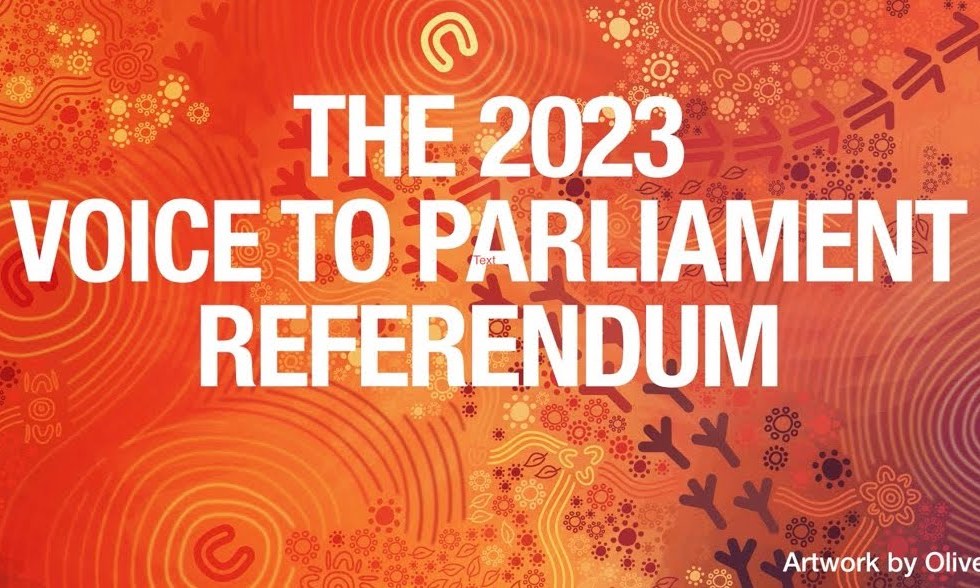Voice to Parliament

At the June 2023 council meeting, council voted to formally support constitutional recognition of Aboriginal and Torres Strait Islander Peoples through a Voice to Parliament enshrined in the Australian Constitution. Here are my speech notes from that evening.
Any change to our constitution is a weighty thing to consider, and it could be argued that councillors have no oar to poke in these particular waters. However, we are publicly elected officials, and community leaders of a sort, and in that respect I think the community deserves to know our mind.
I say this with the full recognition that around this table we do not all agree, and that people in our community have different opinions – a minority for nefarious reasons, but the bulk hold their views in good faith and good conscience. And I hope we as councillors can model the kind of rational debate and discussion on this issue that we hope for in the broader community.
All that said, I am for constitutional recognition of our indigenous peoples, and I think the Voice is a suitable mechanism to achieve this.
From some quarters, the cry is that the Voice is not enough. That it is simply requiring acquiescence to a colonial state that wants to subdue the authentic demands of justice for and by First Nations people. And there is more than a kernel of truth in that. The Voice will have no power to legislate, and it’s only persuasive power stems from its moral authority which may wax and wane. Yet, the Voice is not the end of the task of conciliation with First Nations people, just as the Apology to the Stolen Generations was not the end of the task. Overall, I would rather continually reform than revolutionary leaps that no-one will agree to.
From other quarters, there comes the question – “Will this not result in a calls for similar Voices to be set up for myriad other groups in society?” And I agree, identity politics are a scourge of modern democracy. I do not think multiple constitutionally recognised Voices are a good idea.
However, I contend that the First Nations of any country are a special case, whether it be Australia or Canada or the United States, or in the many nations of South America, and a long list of other nations. The indigenous people of those lands suffered terribly at the hands of the colonists, and continue to suffer the consequences of that time. Because of their long and unbroken history in a land, so close that the only word we have for it is “sacred”, the experience of colonialism has an especially disenfranchising effect on the original inhabitants of any land. That is not to talk down the agency of our First Nations peoples, but simply to observe history, or as the Uluru Statement from the Heart puts it “the torment of our powerlessness”.
To speak more positively, the First Nations of any country (including Australia), because of their almost unimaginably long and storied and complex history, and their sacred link to this place that such a history entails, have insight into the ways human life works in this place. These insights have, thankfully, not been lost entirely. Such knowledge should be more valued by the rest of us than it currently is, and in my view, that strengthens the case for an elevated voice in the life of our Commonwealth.
And what of those who say that we just need more detail? That we need a picture of what this looks like?
This objection, while understandable, is misguided.
Something in the constitution should not have this level of detail. The content of a nation’s constitution is meant to last for longer than the political cycle and longer than lifetimes. However, time and circumstance change, and the Voice needs to have the flexibility to accommodate those changes.
Another example from the Constitution is trial by jury. Juries are a highly significant part of our – they decide whether people are guilty of crimes. It’s guaranteed in the Constitution for any offence against the law of the Commonwealth, and yet the constitution says very little about who is qualified to be on a jury, how they should be selected, how exactly they should operate. It sets the principle, and the leaves the responsibility for the detail up to those who make our laws.
The Voice should be the same. The shape of the Voice, in the sense of who is on it, how these people are chosen, its everyday operations – this will be up to legislators to decide, and I think this is a good thing. The lack of trust in politicians is understandable these days, but in the end it is cynical and self-defeating. I can’t see a better group of people for legislating the actual shape of the Voice. I would rather have an imperfect group of politicians making these decisions than the alternative of an unelected group of technocrats.
No, we need to make this decision on principle, rather than demanding operational detail which will need to change over time.
Closing
So, now comes the time for sober discussion, and for each of us weighing the demand for recognition that the Voice embodies. I call on my fellow Bendigo citizens realise the profound nature of this change, to not ignore it as a distraction from seemingly more pressing concerns. Take the time to hear both sides, and to begin conversations with family, peers and colleagues. And hopefully we will look back on this referendum as a decision that made for unity of purpose as a nation.